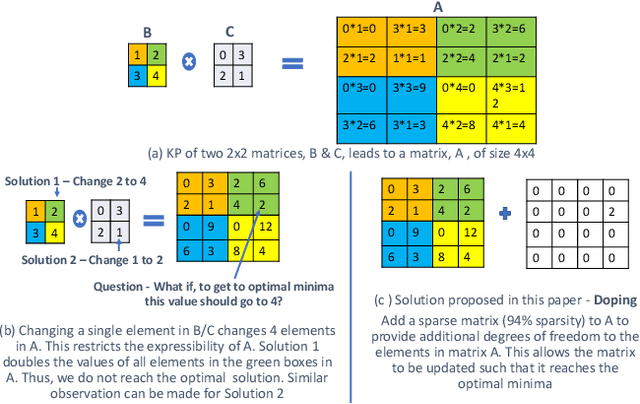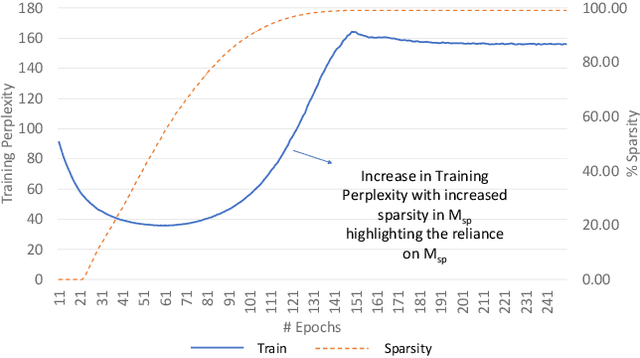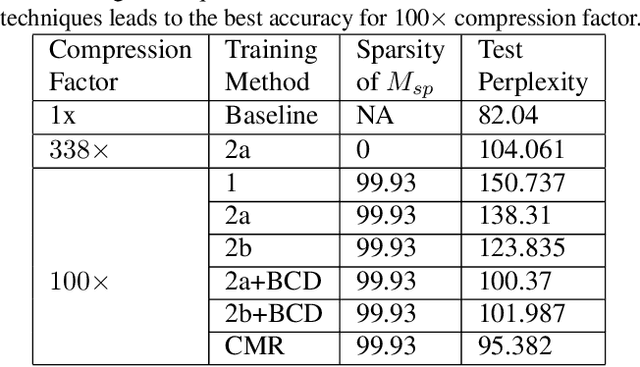Paul Whatamough
Compressing Language Models using Doped Kronecker Products
Jan 31, 2020



Abstract:Kronecker Products (KP) have been used to compress IoT RNN Applications by 15-38x compression factors, achieving better results than traditional compression methods. However when KP is applied to large Natural Language Processing tasks, it leads to significant accuracy loss (approx 26%). This paper proposes a way to recover accuracy otherwise lost when applying KP to large NLP tasks, by allowing additional degrees of freedom in the KP matrix. More formally, we propose doping, a process of adding an extremely sparse overlay matrix on top of the pre-defined KP structure. We call this compression method doped kronecker product compression. To train these models, we present a new solution to the phenomenon of co-matrix adaption (CMA), which uses a new regularization scheme called co matrix dropout regularization (CMR). We present experimental results that demonstrate compression of a large language model with LSTM layers of size 25 MB by 25x with 1.4% loss in perplexity score. At 25x compression, an equivalent pruned network leads to 7.9% loss in perplexity score, while HMD and LMF lead to 15% and 27% loss in perplexity score respectively.
* Link to Workshop - https://mlsys.org/Conferences/2020/Schedule?showEvent=1297
 Add to Chrome
Add to Chrome Add to Firefox
Add to Firefox Add to Edge
Add to Edge